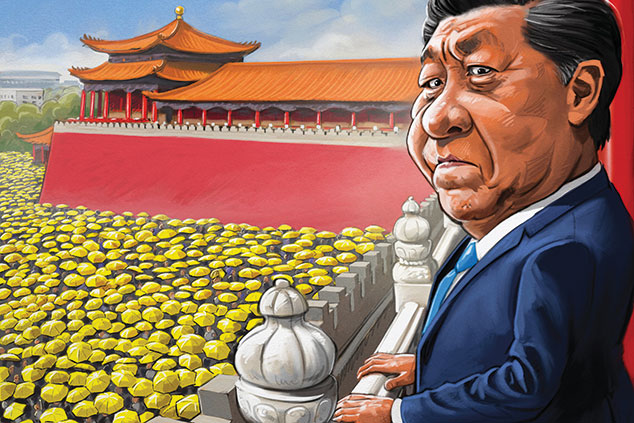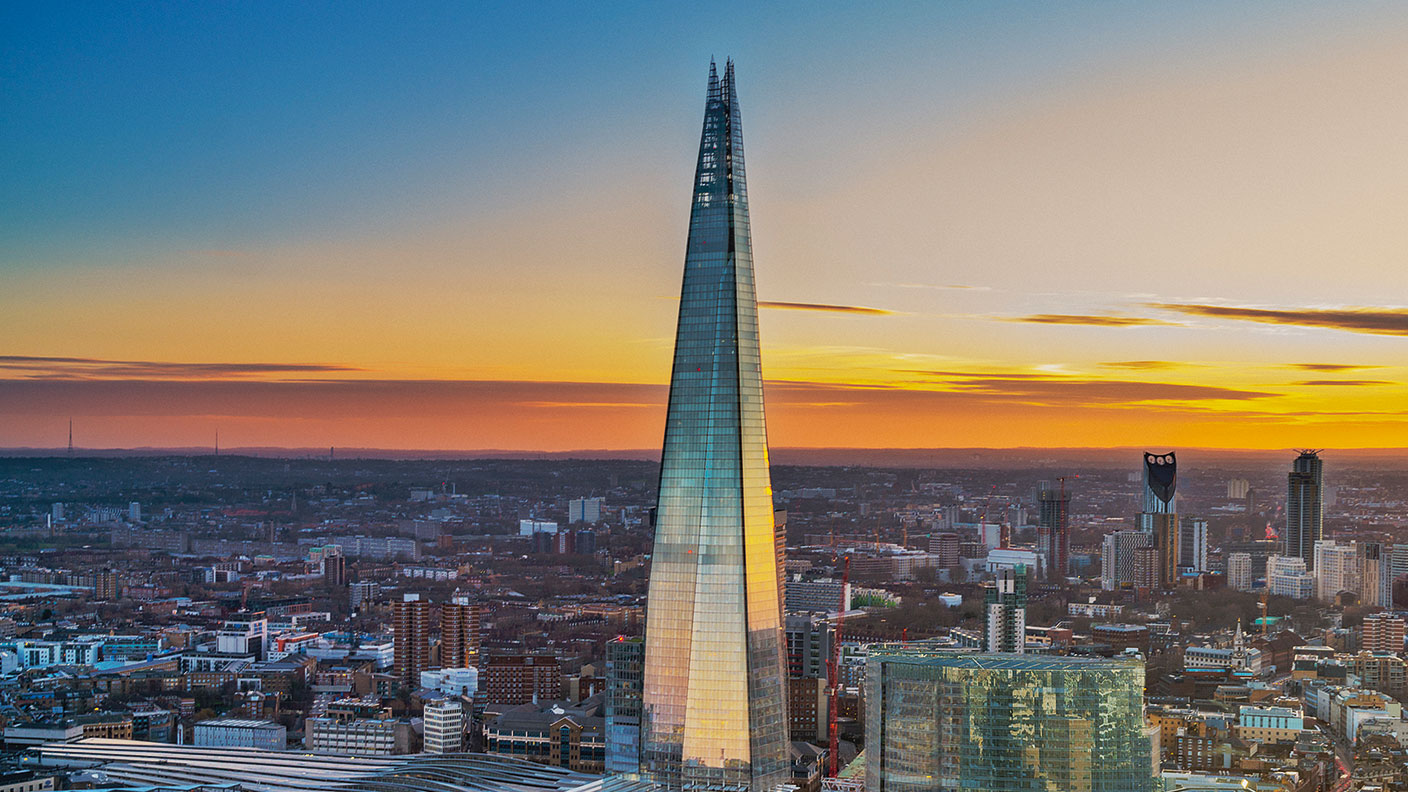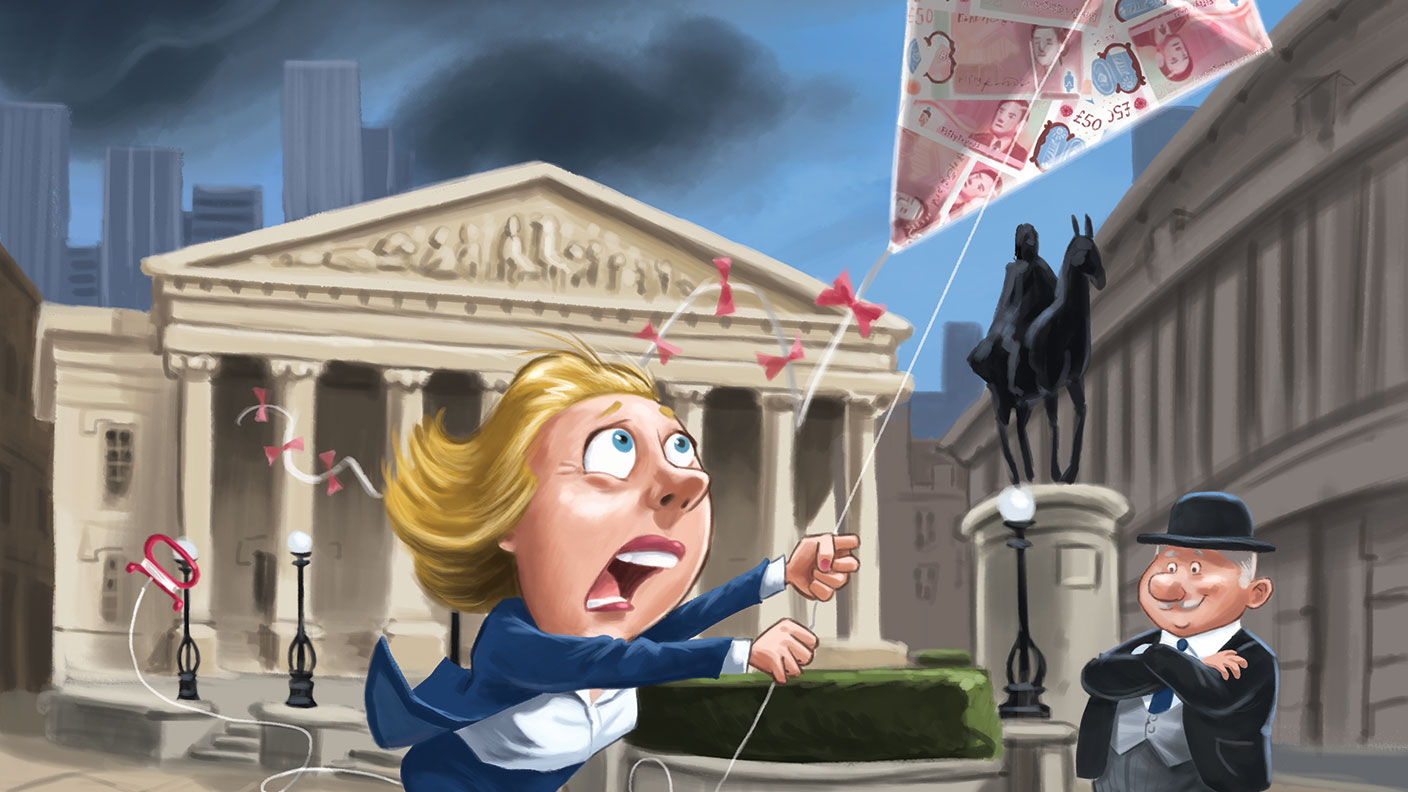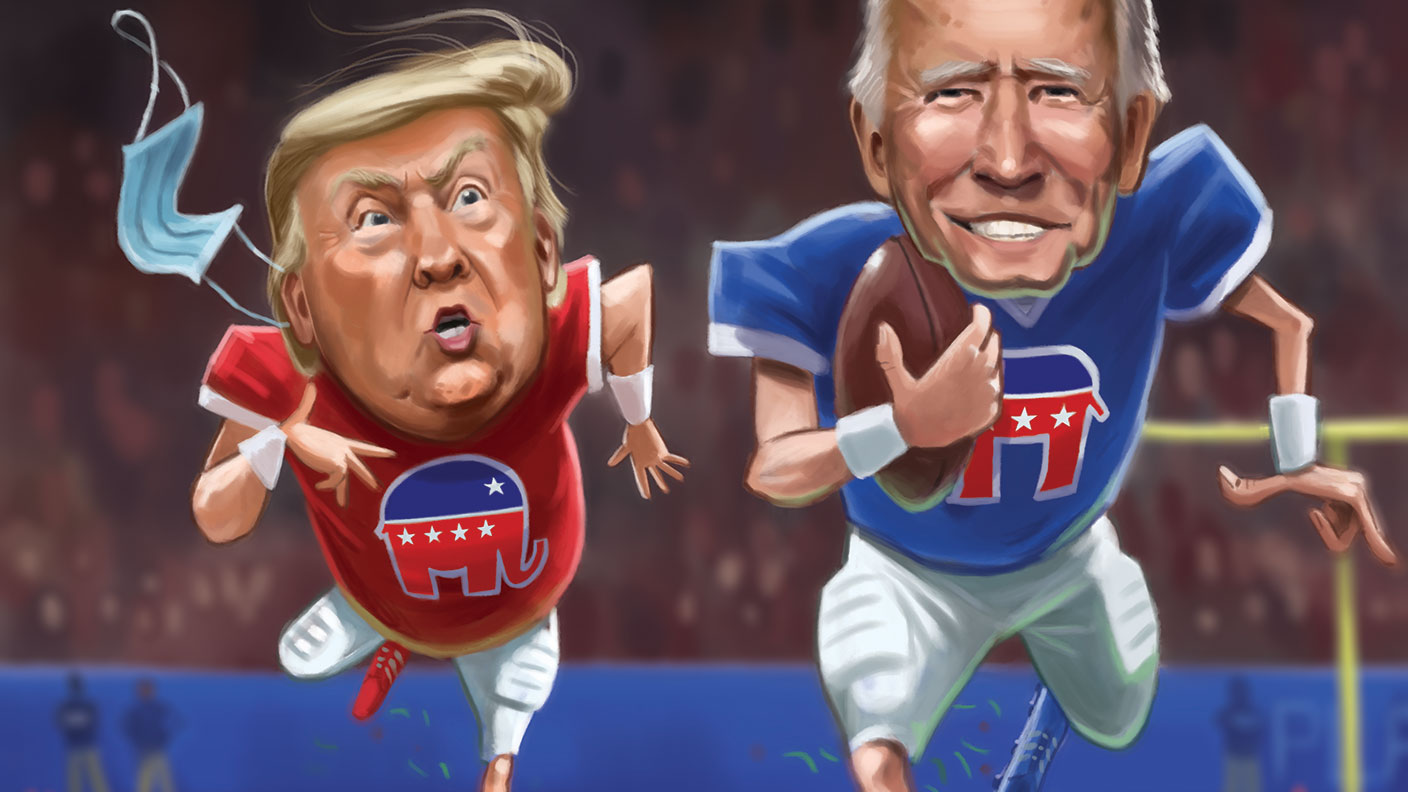Why Hong Kong’s protests are an urgent warning for Beijing
The protests that have shaken Hong Kong will not threaten China’s grip on power for now. But the country’s leaders will need to learn the right lessons to head off bigger problems in the future, says Cris Sholto Heaton.

Get the latest financial news, insights and expert analysis from our award-winning MoneyWeek team, to help you understand what really matters when it comes to your finances.
You are now subscribed
Your newsletter sign-up was successful
Want to add more newsletters?

Twice daily
MoneyWeek
Get the latest financial news, insights and expert analysis from our award-winning MoneyWeek team, to help you understand what really matters when it comes to your finances.

Four times a week
Look After My Bills
Sign up to our free money-saving newsletter, filled with the latest news and expert advice to help you find the best tips and deals for managing your bills. Start saving today!

The spark that sets off a riot or a revolution is often not the real reason why people take to the streets. The start of the French Revolution, for example, is usually said to be the storming of the Bastille prison on 14 July 1789, which was triggered by Louis XVI firing his comparatively popular finance minister three days earlier. In practice, that was just the breaking point in a prolonged political and economic crisis that would eventually have erupted into violence whether the king took that decision or not.
In the same way, the increasingly violent protests that have been shaking Hong Kong for the last seven months are not solely about democracy or freedom of speech. Instead, they are driven by a much broader set of frustrations that represent perhaps the biggest challenge that China faces in the decades ahead.
That's not because these protests are set to spread into mainland China they're not, regardless of what happens in the next few months and how they are finally resolved. There is virtually no sympathy for the Hong Kong protestors among Chinese, who mostly see them as unpatriotic, ungrateful and too willing to overlook how their territory's privileged position within China has allowed them to grow wealthy much faster than the rest of the country.
MoneyWeek
Subscribe to MoneyWeek today and get your first six magazine issues absolutely FREE

Sign up to Money Morning
Don't miss the latest investment and personal finances news, market analysis, plus money-saving tips with our free twice-daily newsletter
Don't miss the latest investment and personal finances news, market analysis, plus money-saving tips with our free twice-daily newsletter
However, in the longer term, the same factors that are driving unrest in Hong Kong could well emerge in China. Indeed, the experience of other countries that have managed a high level of economic success suggests that this is quite likely, unless China learns from their examples and adapts its economic development to head these problems off.
Economics, not democracy
To understand why, it's necessary to look at the foundations of the Hong Kong protests. The immediate trigger was the government's attempt to pass a law that would allow people accused of crimes in jurisdictions with which Hong Kong does not have an extradition treaty to be extradited on a case-by-case basis. One consequence of this would be that suspects could be extradited from Hong Kong to mainland China.
The fact that this law became so controversial was a surprise to almost everybody outside Hong Kong. Most MoneyWeek readers were probably taken aback to hear that there is currently no extradition arrangement between Hong Kong and China not even for clear-cut serious criminal cases like the one that was the direct pretext for the proposed law (which involved a man from Hong Kong who had committed a murder in Taiwan, fled home and confessed to the crime, but could neither be prosecuted in Hong Kong nor extradited to Taiwan under current laws).
The reason why allowing extradition to Taiwan almost unavoidably means allowing extradition to mainland China is that China considers Taiwan to be a rebel province that is part of its territory. So politically neither Beijing nor Hong Kong's top leadership, who are effectively selected by Beijing, were willing to countenance a Taiwan-only extradition law. And the reason why an arrangement that covers the mainland is so controversial is that Hong Kongers believe that it would make it possible for China to pursue political activists based in Hong Kong, thereby undermining the principle of "one country, two systems" under which Hong Kong is supposed to enjoy substantial autonomy and political freedom until 2047 (the 50th anniversary of its return to China). Hence the explicit goal of the protests quickly became not just about the proposed law, but also about demands for greater democracy in Hong Kong.
However, while there are many people in Hong Kong who are deeply concerned about democracy, and while there are real fears about the territory's special rights being eroded, the reason why it has been possible to get millions of people onto the streets of Hong Kong for such a sustained period is that this builds on deep-rooted anger about how well the territory's economic system is working.Hong Kong is extremely wealthy: it has a GDP per capita of $64,000 in purchasing power parity (PPP) terms which adjusts for the difference in the cost of goods and services between countries compared with $46,000 for the UK. But this wealth is very unequally distributed. The territory's Gini coefficient a measure of inequality where zero equals maximum equality and one equals maximum inequality is 0.539 (the UK has a Gini of 0.324).
For the average Hong Konger, the costs of living especially housing costs are unpalatably high. There is a widespread view that a small number of people have grown rich at the expense of the wider population, largely through their role in a dysfunctional property market where a small cartel of property developers have privileged access to the territory's limited supply of land. Problems with monopolies and oligopolies also exist in a number of other sectors, but the issues in real estate are particularly obvious and egregious, so housing tends to be the focus of the most anger.
Inequality isn't a crisis in China yet
At the moment, the grievances that are motivating protestors in Hong Kong are not widespread in China, even though China has high levels of inequality (it has a Gini of 0.465) both between wealthier and poorer areas of the country and within individual areas. China is still growing rapidly and people see opportunities to improve their lives through hard work. And the fact that far greater poverty and even hunger were widespread within China little more than a generation ago sustains the feeling that things are getting better, even if they are obviously getting better for some faster than for others.
That seems likely to continue for a while. The economic outlook for China is reasonably promising compared with the rest of the world. Yes, growth is definitely slowing: GDP grew at 6% year-on-year in the three months to September, the slowest official figure since 1992 (although official figures are not reliable it almost certainly fell below that during the global financial crisis in 2008 and the Asian crisis in 1998). But that reflects the general global economic slowdown and the effect of the Trump administration's trade war against China and Europe, as much as structural factors.
There are certainly plenty of difficulties for the economy to overcome in the years ahead most notably the high level of bad loans in the banking system. Three small regional banks have been bailed out already this year and that's likely to be only the start. However, the risk that this turns into a serious financial crisis seems low, because the problem largely involves renminbi-denominated debts held by state-controlled banks and often extended to state-controlled companies and local-government investment vehicles. This in essence means that one part of the state will be shuffling assets and money around to prop up another part of the state unlike a classic emerging-market funding crisis that involves a sudden stop in lending from foreign investors.
The process of dealing with all the accumulated bad loans will be a very long one. I'd avoid investing in the big Chinese banks, no matter how cheap they look: in addition to their own bad loans (which are much higher than reported), they may well be pressed into service to help resolve the crisis by taking over failed peers or buying assets off them. But while bad debt will definitely be a drag on growth and will curb the ability to stimulate the economy by encouraging banks to lend, as happened after the global financial crisis a decade ago China's debt issues do not look worse than the rest of our over-indebted world. And state control of the key players gives it options for resolving this overhang that many other countries lack.
The big long-term concern that many investors have is demographics. The argument is that China's demographics are almost uniquely bad for a developing country: the low level of births caused by its one-child policy means that while it currently has a large working-age population, it will soon end up with a large group of retirees, putting a big burden on a working-age population to support them. The government's failure to sort out a comprehensive social-security system with affordable healthcare and pensions will make managing this situation even more difficult.
There's no doubt this will be a problem, but the conclusion that China's demographics automatically mean disaster is based on the assumption that the recipe for economic success in the next few decades looks exactly like it did in the latter part of the 20th century: just keep growing your younger workforce. In an era when many countries not just China have ageing populations and where issues such as resource scarcity and sustainability are becoming ever more critical, it's not clear that's true. Finding the technological and social solutions for these is likely to be a key driver of growth for the global economy over the next few decades. So the more optimistic way to look at this is that it will push China's efforts to keep moving up the value chain through automation, investment and research (in the same way that Japan, whose population began to age much earlier, has become a world leader in many key areas).
Nor is China especially at risk of falling into the middle-income trap the term for countries that hit a certain level of income (GDP per capita of around $10,000 is seen as a typical level) due to their natural advantages (ie, natural resources), but then stop getting significantly wealthier due to their failure to move up the value chain. The classic examples are countries such as Brazil (and indeed much of Latin America) and South Africa. Conversely, countries such as Korea and Taiwan have become steadily wealthier in recent decades. The key difference is that the most successful economies continually pushed to develop more advanced industries and services and to improve the skills, education and productivity of their entire workforce (meaning wages could rise without firms becoming uncompetitive compared with global peers). It's pretty clear that China is following the same path as the success stories and so is likely to have a similar outcome.
Wealthier citizens demand more
And paradoxically, that may be where the biggest long-term challenge lies. None of Asia's economic successes have got to where they are without their leaders being held accountable in a way that China's leaders currently are not. Singapore has been a democracy ever since independence and Japan since the end of American occupation. In both cases, the ruling party never lost power throughout the key development years, but regular elections allowed voters their say. Korea and Taiwan were dictatorships for several decades, but both regimes crumbled in the late 1980s and have been democracies every since. Malaysia, which is the Asian economy that has been nearest to falling into the middle-income trap, had a deeply flawed democracy with an increasingly inept set of leaders and in the most recent election the opposition finally overcame enormous obstacles to throw them out. While Hong Kong has limited direct democracy, it enjoys very clear freedom of speech and that has been a sufficient safety valve until now but the combination of a government that is not doing enough to tackle entrenched problems and fears those rights will be lost means anger has now boiled over.
This does not imply that China must inevitably become a Western-style democracy: support for this kind of system in China is low. But the experience of other industrialising economies suggests that as people become wealthier and the pressures of severe poverty fade, they start to demand more such as an end to industrial pollution, improved healthcare, a more transparent justice system, affordable housing and get angry with governments that don't deliver.
If the Communist Party finds a way of showing that it is listening to these concerns, it won't need to surrender its grip (Singapore's leaders have been extremely successful in doing this although what works for a small city state doesn't necessarily work for a country as large as China). So the way that it resolves the current crisis will be important not just for Hong Kong (box below for what this may mean for investors), but also for the conclusions it draws about handling these issues when they almost inevitably emerge on the mainland further down the line.
What to buy if peace returns to Hong Kong
Investing in Hong Kong is a brave decision at the moment. The benchmark Hang Seng index is down by 12% since the beginning of April, even after a recent bounce. Many smaller stocks have fallen far further. There should be opportunities if you can look through the effect the protests are having on the economy and take a medium-term view on what these companies' prospects may be when things quieten down. However, that assumes that things don't get worse before they get better.
Anybody who is confident about what happens now is deluding themselves. News reports suggest that China is planning to remove Carrie Lam as chief executive in the next few months and replace her with a new face who may be better placed to bring about some sort of reconciliation. This could mean policies aimed at tackling the protestors' underlying grievances (though almost certainly not concessions on most of their demands, such as direct elections for the next chief executive).
However, if protests continue to rage out of control and it's important to note that the level of violence from both small sections of the protestors and from the police have turned what started as a peaceful protest into an increasingly unsustainable situation it is certainly not impossible that China's leaders conclude they need to send in the army. It is impossible to predict what the results of that might be.
Let's assume that doesn't happen and consider what the outcome could be if protests gradually die down. Property stocks have been among the major losers, but I would be very careful in assuming that there are any bargains there on a medium-term view. It is clear that tackling the high cost of housing is one of the key steps that the government could take to improve Hong Kongers' standard of living. So Beijing may well insist on major changes that will undermine the system that has been so profitable for the property developers for so long. More generally, I'd assume that any monopolistic companies that contribute to a high cost of living might find themselves under pressure to trim margins and spread the wealth around a bit.
The most interesting area for bargain hunting is probably retail, which has taken a big hit: not just from lower domestic consumption, but also from fewer shoppers from the mainland (who are hugely important for many retailers and who no longer feel welcome) and foreign tourists put off by the protests.
This damage will not be undone quickly: earnings for this year will be dire. But on a long-term view, some offer the prospect of sizeable capital gains and/or decent dividends when conditions improve.
Examples include the three biggest jewellery chains: Chow Tai Fook (Hong Kong: 1929), Chow Sang Sang (Hong Kong: 116) and Luk Fook (Hong Kong: 590). All currently yield around 5%-6% based on historic yields. Cosmetics retailer Sa Sa (Hong Kong: 178) is on a trailing yield of 8.5% and clothing retailer Giordano (Hong Kong: 709) is on 10%. Lifestyle (Hong Kong: 1212) operates a department store in an area that's been strongly affected by protests; it last yielded 8%. These dividends may well be cut as a result of lower earnings, but they give an idea of the firms' policies under normal conditions. I currently hold Sa Sa and Giordano.
SEE ALSO:
Get the latest financial news, insights and expert analysis from our award-winning MoneyWeek team, to help you understand what really matters when it comes to your finances.

Cris Sholt Heaton is the contributing editor for MoneyWeek.
He is an investment analyst and writer who has been contributing to MoneyWeek since 2006 and was managing editor of the magazine between 2016 and 2018. He is experienced in covering international investing, believing many investors still focus too much on their home markets and that it pays to take advantage of all the opportunities the world offers.
He often writes about Asian equities, international income and global asset allocation.
-
 Can US small caps survive the software selloff?
Can US small caps survive the software selloff?US stocks have made their worst start to a year since 1995 relative to a global benchmark. But experts think some sectors of the market are still worth buying.
-
 Review: Eliamos Villas Hotel & Spa – revel in the quiet madness of Kefalonia
Review: Eliamos Villas Hotel & Spa – revel in the quiet madness of KefaloniaTravel Eliamos Villas Hotel & Spa on the Greek island of Kefalonia is a restful sanctuary for the mind, body and soul
-
 Governments will sink in a world drowning in debt
Governments will sink in a world drowning in debtCover Story Rising interest rates and soaring inflation will leave many governments with unsustainable debts. Get set for a wave of sovereign defaults, says Jonathan Compton.
-
 Why Australia’s luck is set to run out
Why Australia’s luck is set to run outCover Story A low-quality election campaign in Australia has produced a government with no clear strategy. That’s bad news in an increasingly difficult geopolitical environment, says Philip Pilkington
-
 Why new technology is the future of the construction industry
Why new technology is the future of the construction industryCover Story The construction industry faces many challenges. New technologies from augmented reality and digitisation to exoskeletons and robotics can help solve them. Matthew Partridge reports.
-
 UBI which was once unthinkable is being rolled out around the world. What's going on?
UBI which was once unthinkable is being rolled out around the world. What's going on?Cover Story Universal basic income, the idea that everyone should be paid a liveable income by the state, no strings attached, was once for the birds. Now it seems it’s on the brink of being rolled out, says Stuart Watkins.
-
 Inflation is here to stay: it’s time to protect your portfolio
Inflation is here to stay: it’s time to protect your portfolioCover Story Unlike in 2008, widespread money printing and government spending are pushing up prices. Central banks can’t raise interest rates because the world can’t afford it, says John Stepek. Here’s what happens next
-
 Will Biden’s stimulus package fuel global inflation – and how can you protect your wealth?
Will Biden’s stimulus package fuel global inflation – and how can you protect your wealth?Cover Story Joe Biden’s latest stimulus package threatens to fuel inflation around the globe. What should investors do?
-
 What the race for the White House means for your money
What the race for the White House means for your moneyCover Story American voters are about to decide whether Donald Trump or Joe Biden will take the oath of office on 20 January. Matthew Partridge explains how various election scenarios could affect your portfolio.
-
 What’s worse: monopoly power or government intervention?
What’s worse: monopoly power or government intervention?Cover Story Politicians of all stripes increasingly agree with Karl Marx on one point – that monopolies are an inevitable consequence of free-market capitalism, and must be broken up. Are they right? Stuart Watkins isn’t so sure.